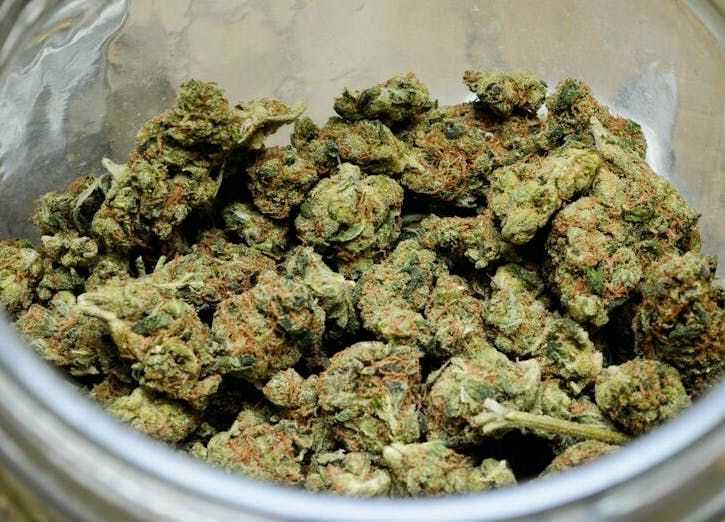Last June, Canada confirmed that it would become the first G7 nation to sell legal cannabis nationwide. Starting Oct. 17, 2018, Canadians will be able to legally buy and consume marijuana for both medical and recreational use.
After initial euphoria about this prospect, legislators, potential sellers and the public came back to earth with a thud. They’re now working out the practicalities of implementation, including how to define and enforce laws about misuse.
Every province and territory is now scrambling to see how it will accommodate legalization, including:
- who can consume cannabis
- where people can smoke it
- how much cannabis folks can grow for personal use
- perhaps the stickiest issue, where it will be sold
Said Prime Minister Justin Trudeau in a press conference:
“One of the things that we heard very clearly from the provinces is that they need a certain amount of time to get their bricks-and-mortar stores—their online sales—ready. Producers need time to be able to actually prepare for a regimented and successful implementation of the regime ... By giving the provinces more time to ensure that they are fully ready for the day of coming into force of this legislation, it will be a smooth success in all the ways that we can hope for.”
RELATED: POLICE FORCES SAY THEY AREN’T READY FOR CANNABIS LEGALIZATION
Trudeau warned that the big provinces—including Ontario, British Columbia (B.C.) and Quebec— may need more time to put their sales regimes in place. So, the government put “a buffer of eight to 12 weeks between the bill's passage and full legalization to allow provinces to get their systems up and running to sell recreational marijuana from storefronts.”
Each Province Deals With Cannabis Legalization in its Own Way
Not only is each province and territory dealing with legalization in its own way, some of their governments are more prepared than others are. New Brunswick, for example, has already built its first storefront for legal marijuana sales. Meanwhile, Ontario is unclear when it will start opening its store locations.
In Nunavut territory, the local government only passed a legal framework to deal with impending legalization last June, and so has a long way to go to get down the nuts and bolts of its policies. The province announced that private and online vendors can apply for licences to sell marijuana, but that no stores will open in 2018, to give time for consultation.
Alberta Hits the Ground Running
Among all of the provinces and territories, Alberta has the lowest minimum age for marijuana consumption: 18. For everywhere else it’s 19 and older.
In Alberta, people will be able to buy cannabis in privately run retail stores and through government-operated online sales. Folks are prohibited from consuming marijuana in cars, in areas frequented by children and wherever tobacco is restricted.
Residents can grow up to four plants for personal use, subject to restrictions from landlords. And they face no possession limits in private residences.
Alberta’s NDP government has worked hard to try to lead the country in legal cannabis sales. On May 8, just over two months after starting to accept applications for retail licences, the Alberta Gaming, Liquor and Cannabis Commission had received 533 applications.
Alberta says it expects to issue 250 licences to cannabis stores across the province in the first year of legalization.
A Globe and Mail article points out that: “Prospective retailers face a comprehensive application process that includes background checks, upfront fees and municipal approvals, which vary from place to place. In Calgary, for example, a development permit, building permit and business licence are required.”
Ontario Is Slower to Rise to the Challenge
Ontario, the country’s most populous province, seems to be stumbling towards legalization. The PC government announced that it would handle online and storefront sales through the Ontario Cannabis Retail Corp. and would open 40 storefronts this year. In April, the government named four locations for retail stores—in Guelph, Kingston, Toronto and Thunder Bay.
Then just last week, sources claimed that the new provincial government, now headed by Premier Doug Ford, would reverse course and allow private businesses to open cannabis stores. It seems that the government will still handle online sales and maybe distribution, opening the door for a hybrid marijuana sales model seen in other provinces.
Government-Run Distribution in B.C. & Quebec
On Canada’s Left Coast, B.C. is handling cannabis sales as it does alcohol, deciding “that the Liquor Distribution Branch will be the wholesale distributor of non-medical cannabis in B.C. and will run provincial cannabis retail stores.”
The NDP government instituted a bidding process for marijuana suppliers and announced, in July, that it had entered into memorandums of understanding with 31 licensed producers (LP) to supply it with an exclusive and competitive assortment of products.
However, the province’s small growers complain that they were left out of the bidding process, which was dominated by larger LPs. “I have been screaming at the provincial government for a year to do something about these regulations, and we are now about to drive off the cliff and there's still no bridge,” says Ian Dawkins, president of the Cannabis Commerce Association of Canada in a CTV News article.
B.C. says it will likely issue a call for more producers soon after legalization and will expand its supply as demand increases.
In June, the Quebec Assembly voted in Bill 157, its long-awaited cannabis law. The SAQ, Quebec's liquor board, will oversee the sale and distribution of marijuana online and in retail stores, through a new, separate entity, the Société Québécoise du Cannabis (SQDC).
There are plans to open about 20 stores by December, and between 150 and 160 stores in the next two to three years.
It appears that provincial and territorial governments may need the calming, therapeutic effects of marijuana as they rush to deal with the headaches of implementing the new cannabis law.
Photo credit: Dank Depot
